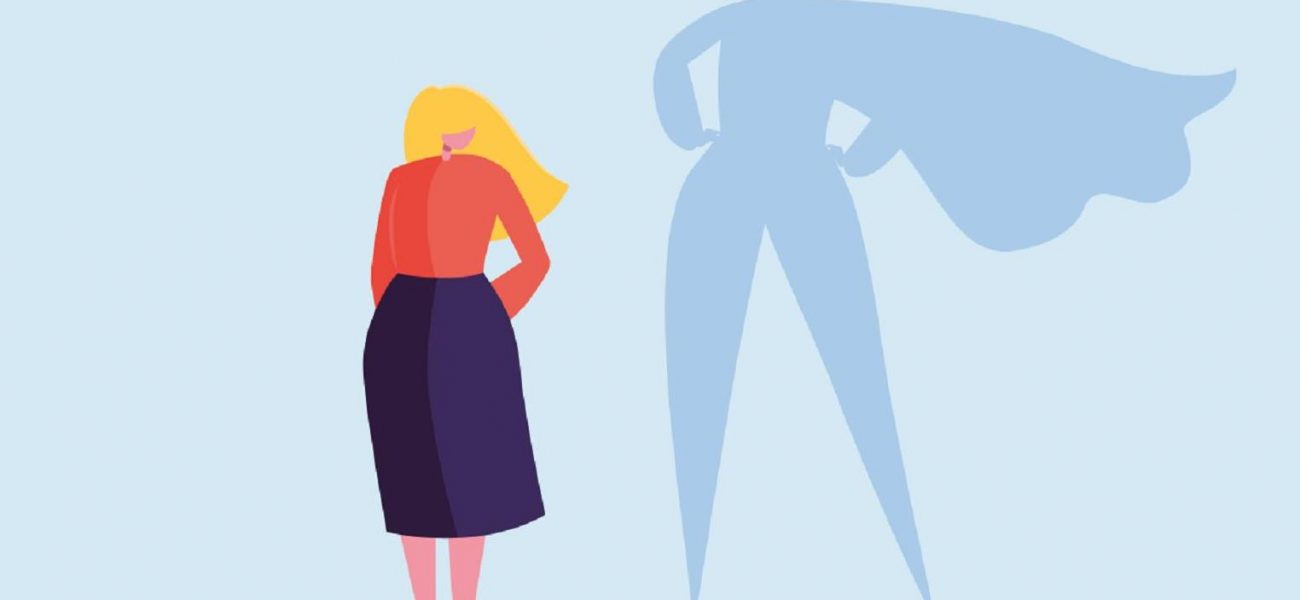We tend to shy away from the things we don’t excel in, but what if sticking with something could make us more trustworthy and successful individuals? H&W investigates
I’ve been the same ever since secondary school. Any activity, exercise or task I’m not good at, I’ll quit after only a couple of attempts, purely because I hate the feeling of failure and I’d much rather surrender to the fact that I’ll never get better than repeatedly cripple my self-esteem. Even if I do continue, it’s with a reluctant attitude – just ask my PT when he asks me to do burpee tuck-jumps. I know it’s a really effective exercise move, but my hatred for them makes me not even want to try. So, what happens when we set aside the fear of failure and embrace what we’re not good at by giving it a go anyway? We asked the experts how acknowledging your weakness could actually be your biggest strength.
Throwing the towel in
We’re creatures of habit, there’s no doubt about it. We’re naturally drawn to the things we’re good at, which is why we’d rather skip the Pilates class that we think is going to make us look like an ungraceful baby panda and avoid it altogether. “Doing what we’re bad at often makes us feel uncomfortable, unhappy and perhaps even fearful of it,” explains Dr Lynda Shaw (drlyndashaw.com). “It can remind us that we’re not superhuman after all, so the temptation to cut and run can be very strong.” But where does this driving force of wanting to quit come from? “It stems from our irrational beliefs,” states Joanna Konstantopoulou, psychologist and founder of the Health Pyschology Clinic (healthpsychologyclinic. co.uk). “Believing that we’re bad at something often makes us think that it’s not worth continuing and we may want to throw in the towel to avoid negative emotions, such as disappointment and sadness.”
Appetite for avoidance
So, it’s no wonder we only stick to the things we’re good at. We’re aware of the results and outcome, and what’s the rewarding side to failure anyway? It turns out there’s science behind why we shy away from anything we’re not so au fait with because it acts as a coping mechanism. “We notice our threat system is active when adrenaline and cortisol are released into our bodies, preparing us for a fight or flight response,” says Ryan Marcovich, psychotherapist at City and West Psychology (doctify.co.uk). “The more certainty we demand to have about situations we face, the more prone we make ourselves to experiencing things as ‘bad’ and therefore must be avoided.” Is staying within our comfort zone a matter of survival? “Our motivation to do what we’re good at releases the reward-driven chemical in the brain called dopamine,” explains Dr Lynda. “This is what encourages us to seek such satisfying pursuits and improve upon them. It’s thought that the job of these dopamine-suppressing neurons is to avoid activities we’re bad at in order to survive.”
Letting go
When it comes to being awful in any given pursuit, there are benefits in admitting when we’re not good at something, as it’s a significant step in realising our strengths and limitations as human beings, says Joanna. “Focusing on what we can do well helps us to grow and improve but, on the other hand, getting out of our comfort zone and doing things that we’re not particularly good at can challenge us to grow through productive stress and motivation.” Not only that, shying away from what we’re not naturally gifted at can literally suppress our development towards reaching our full potential, explains Ryan. “There’s really no harm in doing something you might be very bad at. Research shows that, through perseverance, we can discover a lot more and grow as individuals, but it’s important that the activity we’re doing needs to be relevant to us, mapping onto our personal behavioural needs.”
Benefiting you and others
Another reason for sticking with something you’re bad at is that it can benefit others around you, as well as yourself. Dr Lynda encourages us to not fall into the trap that perfection exists, as this sense of failure can increase stress and anxiety and cause low self-esteem. “Having insight into struggle generally makes you a better manager, colleague, friend and parent because we can understand how others feel. It helps us build relationships, make us feel like we’re more trustworthy to others and enables us to be more patient.” Ryan agrees. He says that having self-awareness can help you to communicate with others better. “Being authentic means that you’re prepared to demonstrate your vulnerabilities and accept your fallibility as human beings. The more we accept that we’re vulnerable and develop a healthy relationship with our inner self, the better it is for us and the people we connect with.”
Preparing to fail
Now you know the advantages, how can we learn to acknowledge the fact that failure is part of daily life? It begins with acceptance, says Dr Lynda. “There’s no point in falsely claiming to not have tried our best as a coping mechanism to deal with not achieving, it’s much healthier to just accept that we aren’t great at some things, but can do well in other areas. If we understand that we’re bad at something, we might actually start to feel good about it and this leads to confidence and enjoying the process.” So, whether you want to improve your culinary skills or running technique, be prepared for setbacks, says psychologist and life coach, Jivan Dempsey (jivandempsey.com). “We can’t be great at everything all the time, it’s how we react to failure that’s important. Impediments can happen, but you can prepare for them, then learn and grow from the experience.”



















